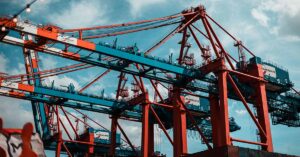Survival Tips for Seafarers: Financial Strategies for a Rainy Day
Seafaring is a demanding and adventurous profession that often takes individuals far from home for extended periods. While the allure of exploring the open seas and visiting distant shores is undeniable, seafarers must also contend with financial uncertainties that can be challenging to navigate. Whether it’s unexpected medical expenses, family emergencies, or a sudden job loss, having a financial safety net is crucial for seafarers. In this article, we’ll explore some essential survival tips and financial strategies to help seafarers weather the storm and prepare for a rainy day.
- Build an Emergency Fund
One of the most critical financial strategies for seafarers is building an emergency fund. An emergency fund is a readily accessible pool of money that covers three to six months of living expenses. This safety net can help you navigate unexpected financial challenges without resorting to debt or borrowing from friends and family.
- Budget Wisely
Creating and sticking to a budget is essential for seafarers. Prioritize your spending on necessities like food, housing, and utilities while setting aside funds for your future. Keep track of your income and expenses to maintain financial stability and save for rainy days.
- Invest in Insurance
Seafarers often face greater risks to their health and safety due to the nature of their work. Investing in health and disability insurance can provide you with the necessary coverage in case of illness or injury. Additionally, consider life insurance to protect your loved ones in the event of an unfortunate accident.
- Diversify Investments
Consider diversifying your investments to spread risk and potentially increase returns. While at sea, it may be challenging to actively manage investments, but you can explore options like mutual funds or exchange-traded funds (ETFs) for a hands-off approach to growing your wealth.
- Automate Savings
Set up automatic transfers from your bank account to your savings or investment accounts. Automation ensures that a portion of your income is consistently allocated for your financial goals, even when you’re at sea and unable to make manual transactions.
- Prepare for Retirement
Given the physical demands and unique nature of a seafarer’s career, it’s prudent to plan for your retirement carefully. Regularly setting aside a portion of your income for your post-working years is vital for securing your financial future. Explore retirement savings options available to you, such as employer-sponsored retirement plans or private retirement accounts, to ensure you have a comfortable retirement to look forward to.
- Consult a Financial Advisor
Seafarers often have unique financial needs and challenges. A qualified financial advisor can provide personalized guidance on investment opportunities, tax planning, and overall financial security tailored to your seafaring lifestyle.
- Stay Informed
Stay informed about maritime industry trends and changes in financial regulations that may impact your income or expenses. Being aware of these developments allows you to adapt your financial strategies accordingly.
Surviving the financial challenges that come with a seafaring career requires careful planning and discipline. By building an emergency fund, budgeting wisely, investing in insurance, diversifying investments, automating savings, preparing for retirement, consulting a financial advisor, and staying informed about industry developments, seafarers can navigate financial storms with confidence and secure their financial well-being for the long term.
Share this content:















Post Comment